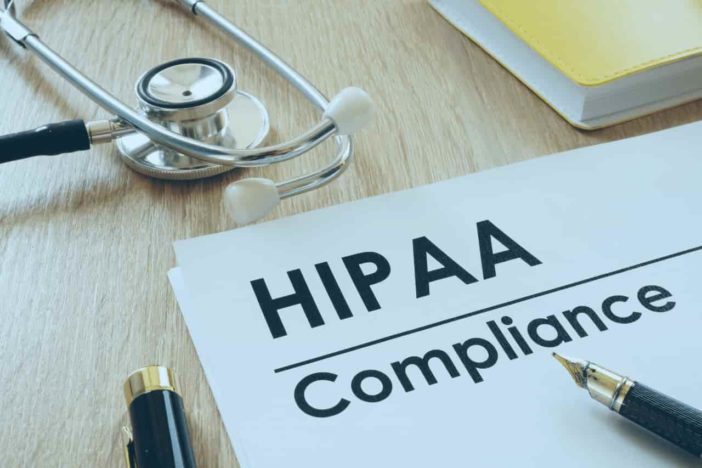If you have a business that deals with the healthcare industry, then you must understand HIPAA compliance. With compliance regarding the Health Insurance Portability and Accountability Act (HIPAA), health care providers and healthcare organizations are required to maintain the privacy and security of individuals’ protected health information.
In this blog post, we will discuss what HIPAA compliance means and why it is important to your business. We’ll also touch on how penalties can affect your company’s bottom line if you don’t take steps to maintain compliance.
What Is HIPAA Compliance?
HIPAA compliance is a set of regulations that healthcare providers and businesses must adhere to protect the privacy and security of patient data. The HIPAA Security Rule specifically sets forth national standards for protecting electronic health information.
Adhering to HIPAA compliance can seem like a daunting task, but there are many resources available to help organizations comply with the law. So the importance of compliance training is critical to protect both the business and their patients. The HHS Office for Civil Rights (OCR) offers comprehensive guidance on how to achieve and maintain HIPAA compliance, as well as free tools and training courses.
Why Does HIPAA Compliance Matter?
There are a few key reasons why HIPAA compliance matters. First and foremost, complying with HIPAA regulations helps to protect the privacy of patients’ health information. This is important because it ensures that individuals’ health data remains confidential. Additionally, complying with HIPAA helps organizations to demonstrate that they take data security seriously and are committed to protecting their patients’ information. Finally, adhering to HIPAA requirements can help organizations avoid costly fines and penalties in the event of a data breach.
When it comes to ensuring the privacy of patient data, HIPAA compliance is essential. As mentioned earlier, one of the main purposes of HIPAA is to protect individuals’ personal health information from being accessed or disclosed without their permission. If organizations do not take the appropriate measures to protect their patients’ data, they can be held liable for any unauthorized access or disclosure of that information. For example, if an employee accidentally emails a patient’s health record to the wrong person (or leaves it on a park bench), then HIPAA compliance will make it easier for them to avoid liability and litigation costs associated with such incidents.
Penalties for Non-Compliance
HIPAA compliance is not optional. The penalties for non-compliance can be severe, including fines and even imprisonment. The Department of Health and Human Services (DHHS) Office for Civil Rights (OCR) enforces HIPAA compliance and has the authority to levy civil penalties against covered entities and business associates that violate HIPAA rules.
The maximum penalty for a violation is $50,000 per calendar year for each affected individual. This means that the total penalty could reach millions of dollars for a large organization with thousands of patients impacted by a breach. In addition, individuals who have suffered harm as a result of a HIPAA violation may file suit seeking damages. It is essential to ensure your organization complies with HIPAA rules to avoid facing damaging consequences. The OCR website provides information for individuals on how they can file a complaint if their privacy has been violated by an organization that is required to follow HIPAA regulations.
How Can Your Company Maintain HIPAA Compliance?
It’s important to note that HIPAA compliance is a shared responsibility. For your company to be compliant, everyone has to follow the rules and regulations as outlined by HIPAA. This means every member of an organization from those who have access to or can view patient records up through management needs training on proper procedures when it comes to maintaining privacy and security of PHI (Protected Health Information). From IT managers up through upper-level management needs regular training in this area. It also doesn’t hurt if they know how their system works about PHI either. If you don’t understand what information is stored where then you may unknowingly violate policy – which would not only open your business up for fines but could result in customer data breaches.
Who Does HIPAA Affect?
HIPAA affects anyone who handles protected health information (PHI). This includes healthcare providers, insurers, employers, and business associates. PHI is any information that can be used to identify a patient. It can include names, addresses, insurance numbers, and medical records. Anyone who comes into contact with this information must ensure it is protected according to HIPAA regulations. Failing to do so can result in heavy fines or even criminal charges.
It’s important to understand HIPAA compliance and how it applies to your business. If you’re not sure whether you need to comply with HIPAA, consult an attorney or compliance specialist. Ignorance of the law is no excuse for violating its provisions. Protecting patients’ privacy is essential for maintaining the integrity of the medical community.
Who is NOT Affected by HIPAA?
Those who are not affected by HIPAA are:
- Individuals who do not have access to protected health information (PHI)
- Business associates who do not have access to PHI
- Health care providers who have not Covered Entities or Business Associates
- State agencies that are not Covered Entities or Business Associates
- Political subdivisions of states, such as counties and cities, that are not Covered Entities or Business Associates.
- Members of the media without access to PHI (unless they are contracted with a covered entity)
- Researchers who do not have access to PHI (unless they are contracted with a covered entity)
- Churches and other religious organizations that offer pastoral care
While these entities are not directly subject to HIPAA regulations, they still must comply with the Privacy Rule’s requirements for safeguarding PHI. For example, churches and religious organizations must ensure that any member who has access to PHI complies with the Privacy Rule. And groups of healthcare providers sharing PHI must develop a way to protect against unauthorized access and use of the information.
HIPAA compliance is important for everyone involved in the healthcare industry, from patients to providers to business associates. By understanding HIPAA’s requirements and implementing safeguards to protect PHI, we can ensure that patient data is kept safe and confidential.





